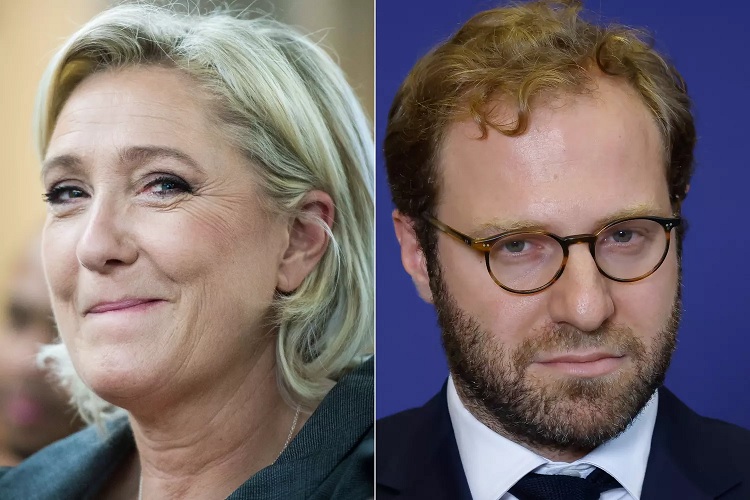Budget Debate Fuels Market Tensions Amid Government Uncertainty
Elevated Spreads Signal Persistent Concerns
French bond spreads remain alarmingly high, reaching levels last seen during the European financial crisis in 2012. Despite a slight compression overnight, investors remain uneasy about the country’s economic stability. Finance Minister Antoine Armand’s willingness to amend the 2025 budget proposal to avert a government collapse has done little to ease concerns. The spread divergence between French and broader European bonds highlights the unique fiscal and political challenges France faces.
Political Showdown Intensifies Budget Crisis
As the National Assembly prepares for the Dec. 18 budget debate, opposition leader Marine Le Pen has issued an ultimatum. She demands €60 billion in budget adjustments, including a tax moratorium, indexed pensions, and stricter migration policies. National Rally leader Jordan Bardella celebrated a recent victory in halting a €3 billion electricity tax but warned against further tax increases. The opposition has made it clear: failure to meet their demands could trigger a no-confidence vote and topple Prime Minister Michel Barnier’s government.

Rising Fiscal Deficits Fuel Market Anxiety
The ongoing political standoff has amplified market fears, driving up French bond yields. Elevated asset-swap spreads, which reflect supply-demand imbalances and credit risks, indicate declining investor confidence. France’s growing fiscal deficits, coupled with political uncertainty, are weighing heavily on its financial outlook. While asset-swap spreads across Europe and the U.S. are generally narrowing, France’s spreads have sharply diverged. Key market events, such as Macron’s surprise election announcement in June and the current budget crisis, underscore the fragility of France’s fiscal position.
Government Eyes Spending Cuts Over Tax Increases
Armand has emphasized the importance of passing the budget to avoid “unnecessary risk” to the economy. In a bid to compromise, he has proposed reducing government spending rather than raising taxes. However, opposition leaders like Le Pen remain skeptical, insisting that broader structural reforms are necessary. Bardella has specifically called for ending increased medical costs and reinstating the old pension system, framing these measures as urgent steps to address public concerns.
Outlook: Uncertainty Dominates
The market remains cautious as the Dec. 18 deadline approaches. Investors are closely watching for signs of a narrowing spread differential, which would indicate improving sentiment on France’s fiscal stability. For now, the unresolved budgetary impasse, combined with the specter of political upheaval, continues to cast a shadow over France’s economic future. Both the government and opposition must find common ground quickly to restore investor confidence and prevent further market disruptions.
Our Visitor






 Users Today : 10
Users Today : 10



